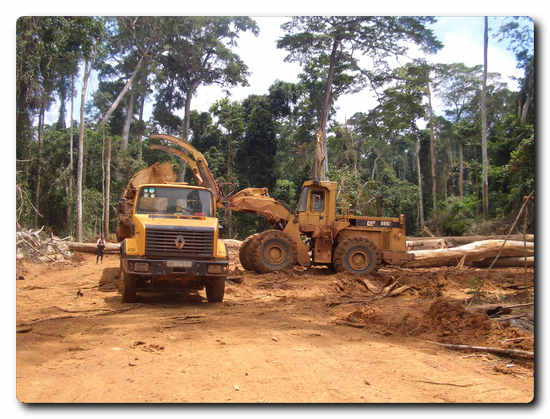ZSL finds lack of transparency in tropical forestry sector restricts monitoring of corporate commitments
Efforts to monitor and manage the impacts of the tropical forestry sector are being hindered, due to many companies failing to accurately disclose where they operate – leaving biodiverse forests at risk of unsustainable exploitation. This is just one finding of an in-depth evaluation of forestry companies, published today on 18 July 2018 by ZSL (Zoological Society of London).
In assessing 50 of the world’s most significant tropical timber and pulp producers, ZSL’s SPOTT (Sustainability Policy Transparency Toolkit) found that most are failing to publish accurate maps of their operations. With 2017 the second worst year on record for tropical tree cover loss, the forestry sector must now move to publish maps that support independent monitoring of corporate commitments targeted at addressing risks to forests.

ZSL’s SPOTT assessments cover timber and pulp producers with combined land holdings of over 350,000 square kilometres, an area the size of Germany. In the latest annual assessments, only eight companies were found to publish clear and comprehensive maps of their forestry operations, while 27 companies disclosed incomplete information. A further 15 companies do not provide any suitable maps of their operations, meaning the location of over 45,000 square kilometres – or over six million football pitches – of forestry operations remains unclear.
To increase accountability, the tropical forestry sector should freely publish digitised maps that allow the exact locations and boundaries of their operations to be identified. Certification schemes such as the FSC (Forest Stewardship Council) and PEFC (Programme for Endorsement of Forestry Certification) should also take steps to encourage the publication of certified companies’ mapped boundaries.
Chris Eves, ZSL Forestry Officer said: “A lack of spatial data pinpointing where forestry companies are operating makes it difficult for third parties to fully assess their impacts on the world’s remaining tropical forest. Certification schemes including the FSC and PEFC have a vital role to play in ensuring forest products are sustainably sourced. They can lead the way by making the publication of such information a requirement.”
As the only forestry sector assessment of its kind, SPOTT scores companies against over 100 environmental, social and governance (ESG) indicators that measure company transparency. Issues covered by the assessments include biodiversity conservation, greenhouse gas emissions, land conflicts, and labour rights. The 2018 results emphasise the pressing need for improved transparency across the board: on average, companies scored just 31%. Only five of the 50 companies assessed, demonstrated higher levels of transparency (scoring more than 66%).
Other key findings from the 2018 SPOTT assessments include inadequate commitments to conserve biodiversity within company concessions, putting Critically Endangered species such as the Sumatran tiger (Panthera tigris sumatrae) and Western gorilla (Gorilla gorilla) at risk. Over a third of forestry companies assessed by ZSL lack a full commitment to conserve biodiversity, whilst over half are failing to disclose whether they have set aside any of their land for the benefit of wildlife.
Robert-Alexandre Poujade, ESG Analyst at BNP Paribas Asset Management, said: “Responsible investors and banking institutions are increasingly aware of the impact that unsustainable commodity production can have on forests globally. Tools relying on satellite imagery are already proving crucial in tracking deforestation, but the loop can only be closed when companies publicly disclose the exact location of their operations.”
A summary of the latest SPOTT timber and pulp assessments can be found here: www.spott.org/timber-pulp-summary. Full details of all 50 timber and pulp producers assessed on SPOTT can be found here: www.spott.org/timber-pulp
SPOTT (Sustainable Palm Oil Transparency Toolkit)
Developed by the Zoological Society of London (ZSL), SPOTT is an online platform supporting sustainable commodity production and trade. By tracking transparency, SPOTT incentivises the implementation of corporate best practice.
SPOTT assesses commodity producers and traders on the public disclosure of their policies, operations and commitments related to environmental, social and governance (ESG) issues. SPOTT scores companies annually against sector-specific indicators, allowing them to benchmark their progress over time. Investors, buyers and other key influencers can use SPOTT assessments to inform stakeholder engagement, manage risk, and increase industry transparency. For more information, visit www.SPOTT.org
ZSL (Zoological Society of London)
Founded in 1826, ZSL (Zoological Society of London) is an international scientific, conservation and educational charity whose mission is to promote and achieve the worldwide conservation of animals and their habitats. Our mission is realised through our ground-breaking science, our active conservation projects in more than 50 countries and our two Zoos, ZSL London Zoo and ZSL Whipsnade Zoo. For more information visit www.zsl.org
